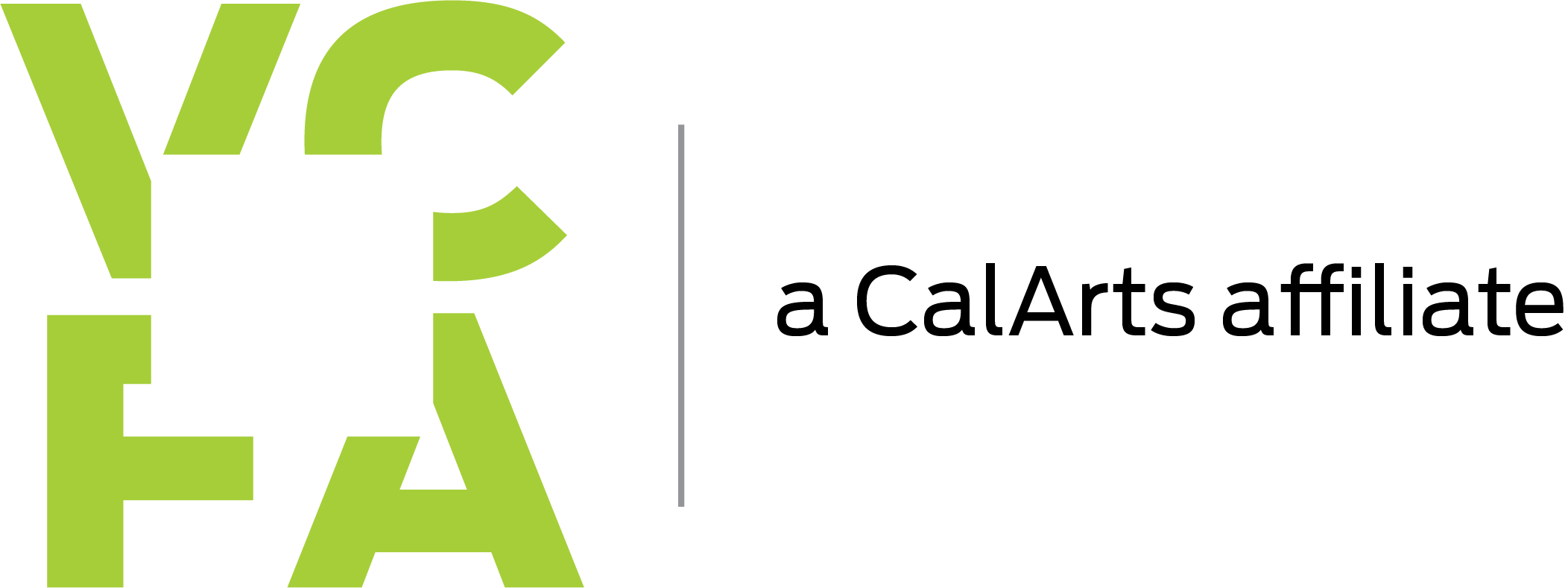What Does it Really Mean to Earn Your MFA Degree?

VCFA MFA in Film students look to the presenter during a residency lecture, one of many students will attend as part of this creative community.
The meaning of an MFA degree can be best understood through its outcomes:
- Artistic growth and development
- Expanded career and networking opportunities
- Being part of a creative community
- Professional recognition and personal fulfillment
What is an MFA degree?
A Master of Fine Arts (MFA) degree is a graduate degree, following undergraduate study, for artists working in disciplines like creative writing, filmmaking, visual art, music, graphic design, and more. The work of the degree program tends to be hands-on, focused on a specific artistic area, and often culminates in a thesis project that demonstrates the student’s creative development and practice. In most fields, the MFA is considered a terminal degree, unlike the Master of Arts (MA), meaning that the recipient is qualified to teach at the collegiate and university level.

What gives an MFA degree meaning? Artistic growth, expanded opportunities, fulfillment, and expanded opportunities to name a few. Photo of work from graduating student Jonathan Bybee (GD ’24), MFA in Graphic Design.
Artistic Growth and Development
An MFA program offers a structured environment conducive to artistic growth and development.
Through intensive coursework, mentorship, and critique sessions, students refine their technical skills, deepen their artistic vision, and push the boundaries of their creativity. This nurturing environment encourages experimentation, risk-taking, and the exploration of new concepts and mediums.
Artist Michael Markowsky told U.S. News & World Report about the personal rewards of earning his MFA degree. “I had a fantastic experience, which I always describe to people as saving me 10 years worth of struggling to refine my art practice and ultimately my life. It was an intense experience, but it was instrumental in helping me understand the core ideas and themes that run throughout all of the diverse artworks that I make.”
The personal and artistic growth experienced during an MFA program provides an invaluable lifelong asset that continues to enrich one’s artistic practice long after graduation.
“My faculty mentors were amazing—brilliant artists and writers, and supportive, thoughtful mentors who challenged and inspired me.” —Mary-Kim Arnold (W ’16), MFA in Writing

Expanded career and networking opportunities are just one of the benefits of a two-year Master of Fine Arts degree program.
Expanded Career and Networking Opportunities
Obtaining an MFA degree can open doors to a wide range of career opportunities within the arts and related industries. Employers value the advanced skills, critical thinking abilities, and creative problem-solving expertise honed during an MFA program.
Graduates may find employment as art educators, creative directors, freelance artists, or pursue entrepreneurial endeavors. The broader skill set and specialized knowledge gained through an MFA can contribute to higher earning potential (average base salary for MFA graduates in 2024 is $71,000) and long-term career advancement.
MFA programs also provide a fertile ground for building connections with peers, faculty members, visiting artists, and industry professionals. These networking opportunities can lead to collaborations, exhibitions, residencies, fellowships, publications, and referrals that significantly impact an artist’s career trajectory and contribute to professional success.
The network developed during an MFA program can serve as a support system, offering guidance, mentorship, and access to valuable resources even beyond graduation.
“I have made a lot of connections with people—colleagues and faculty—with whom I am now actively collaborating.” —Ken Topham (MC ‘24), MFA in Music Composition
Being Part of a Creative Community
Creative communities are vital to artists, and the community of like-minded artists, faculty members, and mentors found at an MFA program fosters a supportive and inspiring environment that fuels creativity. Surrounding yourself with peers who share a passion for the arts encourages personal growth, self-discovery, and a lifelong appreciation for artistic expression.
“The diversity and creativity within the VCFA community was incredibly stimulating and broadened my artistic perspective.” —Hafid Abdelmoula (F ’19), MFA in Film
“When you go through an experience together, especially an experience that is focused on your art and your expression and your identity as an artist, I feel like you merge with others with a level of closeness that is unrivaled.” —Rocky Callen (WCYA ’19), MFA in Writing for Children and Young Adults

Being part of a creative community is filled with opportunities to collaborate and grow as an artist.
Professional Recognition and Personal Fulfillment
Graduates of reputable MFA programs often earn recognition and accolades within the artistic community. The credibility and reputation associated with an MFA degree can open doors for exhibitions, grants, residencies, teaching, and publishing opportunities. Establishing oneself as an MFA-educated artist can contribute to a lasting artistic legacy and enhance an individual’s standing within the arts community.
“The VCFA MFA laid a strong foundation of both craft and the editorial process that led to subsequent professional opportunities, eventually paving a path to an agenting career.” —Lori Steele (WCYA ’12), MFA in Writing for Children and Young Adults
But the intrinsic rewards of pursuing an MFA degree extend far beyond the immediate benefits. Engaging in a rigorous program of study that encourages self-expression and creative exploration can bring a deep sense of personal fulfillment.
“VCFA was a life-changing experience for me and for every other VCFA graduate I know.” —Kate Hosford (WCYA ’11), MFA in Writing for Children and Young Adults
Change Your Life with an MFA
An MFA degree means a life-changing investment in yourself and your artistic aspirations.
By honing your skills, nurturing your artistic vision, building a strong network, gaining access to valuable resources, and joining an inspiring creative community, you will experience transformative growth.
Whether you aspire to be a writer, kidlit author, designer, filmmaker, visual artist, performer, or any other creative professional, an MFA degree equips you with the tools, knowledge, and connections necessary to thrive in your chosen field.
Related Posts
- Beyond Quotation Marks: How to Write Dynamic Dialogue Jun 02, 2025
- 3 Writing Prompts for YA Horror Jul 30, 2025
- How to Write a Graphic Novel: Top 3 Tips Jun 11, 2025

